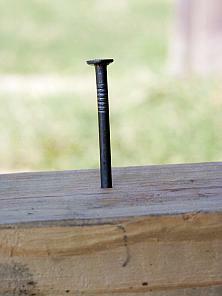Promises of a Messiah: Psalm 22
This week we’re going back to King David for another remarkable Psalm. David, apparently feeling forsaken and surrounded by enemies, wrote a magnificent piece of poetry in Psalm 22.
But there are some strange things about the Psalm. We don’t know of anything in this life of David that specifically and literally fits what he describes. It may be he’s speaking poetically, or maybe this is just an episode that wasn’t recorded in Scripture.
However, we do know the Psalm was prophetic – and we can see how it describes, with remarkable detail, the crucifixion of the Messiah a thousand years later.
Another interesting thing about Psalm 22 – there is no condemning of enemies and no demand of judgement. And no confession of sin. This is a righteous man being put to death by the wicked, and yet he doesn’t rail against his enemies.
My God, my God, why have you forsaken me? Why are you so far from saving me, from the words of my groaning?
(Psa 22:1-2)
And at the ninth hour Jesus cried with a loud voice, "Eloi, Eloi, lema sabachthani?" which means, "My God, my God, why have you forsaken me?"
(Mar 15:34)
But I am a worm and not a man, scorned by mankind and despised by the people. All who see me mock me; they make mouths at me; they wag their heads; "He trusts in the LORD; let him deliver him; let him rescue him, for he delights in him!"
(Psa 22:6-8)
And those who passed by derided him, wagging their heads … So also the chief priests, with the scribes and elders, mocked him, saying, "He saved others; he cannot save himself. He is the King of Israel; let him come down now from the cross, and we will believe in him. He trusts in God; let God deliver him now, if he desires him. For he said, ‘I am the Son of God.’"
(Mat 27:39-43)
Yet you are he who took me from the womb; you made me trust you at my mother’s breasts. On you was I cast from my birth, and from my mother’s womb you have been my God.
(Psa 22:9-10)
And Mary said to the angel, "How will this be, since I am a virgin?"
And the angel answered her, "The Holy Spirit will come upon you, and the power of the Most High will overshadow you; therefore the child to be born will be called holy–the Son of God…"
(Luk 1:34-35)
 |
For dogs encompass me; a company of evildoers encircles me; they have pierced my hands and feet –I can count all my bones– they stare and gloat over me;
(Psa 22:16-17)
And when they came to the place that is called The Skull, there they crucified him, and the criminals, one on his right and one on his left.
(Luk 23:33)
they divide my garments among them, and for my clothing they cast lots.
(Psa 22:18)
And when they had crucified him, they divided his garments among them by casting lots.
(Mat 27:35)
There has been some discussion about the translation of the word "pierced" in verse 16. Using the imagery of the Psalm, it seems to refer to a tearing at the hands and feet by the animals (the wicked people attacking).
The translators of the Septuagint, many years before Christ, thought that "pierced" was accurate enough to use it in the Greek. Others translated it pierced or disfigured, such as the Jewish Yalkut Shimoni, and Aquila, a convert from Christianity to Judaism around 133AD.
And of course other passages refer to the Messiah being pierced, such as Isaiah 53:5 (the word wounded carried the idea of pierced through) and Zechariah 12:10.
The piercing or wounding of hands and feet is a remarkable thing to write, in a society where crucifixion was unknown – and wouldn’t be known for many hundreds of years. Taken together with the rest of the description, it’s clearly describing the scene that would take place outside Jerusalem in the time of the Messiah.
The author of the book of Hebrews quotes from Psalm 22 – the song of praise that the Messiah sings after saving His people:
But we see him who for a little while was made lower than the angels, namely Jesus, crowned with glory and honor because of the suffering of death, so that by the grace of God he might taste death for everyone.
For it was fitting that he, for whom and by whom all things exist, in bringing many sons to glory, should make the founder of their salvation perfect through suffering.
For he who sanctifies and those who are sanctified all have one source. That is why he is not ashamed to call them brothers, saying, "I will tell of your name to my brothers; in the midst of the congregation I will sing your praise."
(Heb 2:9-12 – see Psalm 22:22)
The righteous Man was slain by the wicked – but it was a part of a greater purpose of God – to bring salvation. His people were crucified with Him, and will rise in His power, to the glory of God.
As the Apostle Paul said:
I have been crucified with Christ. It is no longer I who live, but Christ who lives in me. And the life I now live in the flesh I live by faith in the Son of God, who loved me and gave himself for me.
(Gal 2:20)
